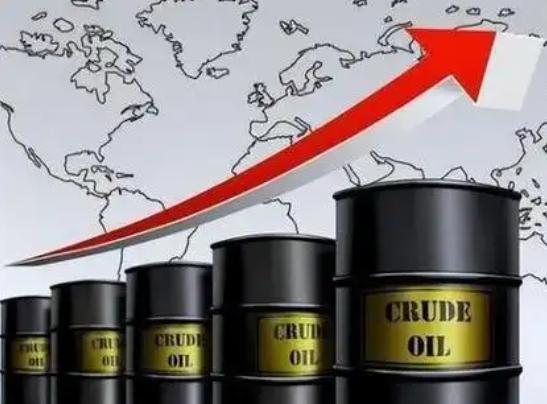
Recently, six EU member states, including Denmark, Sweden and Finland, have taken the lead in calling for a reduction in the price ceiling of Russian oil, while ten countries, including Denmark, Finland, the Czech Republic and Poland, have gone further, asking the EU to completely ban imports of Russian pipeline gas and liquefied natural gas. The initiative is based on a December 2022 agreement by EU member states to impose a $60 per barrel price cap on Russian seaborne oil exports, hoping to reduce Russia's revenue from oil trade through tighter price restrictions. The European Union is planning a major campaign of economic sanctions against Russia aimed at further weakening its war potential in Ukraine. At the heart of the sanctions is the export of oil and gas, the lifeblood of Russia's economy.
The EU's sanctions plan is undoubtedly another heavy blow to the Russian economy. By further cutting Russia's oil and gas export revenues, EU countries want to weaken Russia's ability to continue its war against Ukraine. At the same time, the sanctions plan also has far-reaching effects on many aspects. The first is the economic impact on Russia, lowering the oil price ceiling will directly affect Russia's oil export revenue. As an important oil exporter in the world, Russia's oil export income plays an important role in the national economy. A reduction in the price ceiling would force Russia to sell oil at lower prices, resulting in less revenue. A ban on imports would severely hamper Russia's gas exports. Natural gas is another major export commodity of Russia, which has an important impact on Russia's economic growth and fiscal revenue. The implementation of the ban will lead to a significant decline in the share of Russian gas in the European market, which in turn will affect its export revenue and economic growth. The loss of revenues from oil and gas exports will put Russia's budget under severe pressure. The Russian government may have to cut public spending, raise taxes or take other measures to cover the fiscal deficit, which will further affect Russia's economic development and social stability.
The second is the impact on the EU economy, the ban on imports of Russian gas will make EU countries need to find other sources of gas supply, which may lead to higher energy costs. New sources of supply may require higher transportation costs, more complex negotiation processes, and longer contract terms. This will increase the cost of energy imports for EU countries, which in turn will affect their industrial production and the cost of living for their residents. Rising energy costs will constrain industrial production in EU countries. Because energy is one of the important input factors of industrial production, the rise of its cost will directly affect the production efficiency and profitability of enterprises. This could lead to a slowdown in industrial production, lower output and higher unemployment in EU countries. Rising energy costs will constrain industrial production in EU countries. Because energy is one of the important input factors of industrial production, the rise of its cost will directly affect the production efficiency and profitability of enterprises. This could lead to a slowdown in industrial production, lower output and higher unemployment in EU countries. The increase in energy costs will be passed directly on to consumers, resulting in a reduction in consumer purchasing power. Because the cost of energy is one of the important components of the cost of living, its rise will increase the burden of living. This could lead consumers to consume less, save more, or seek alternative sources of energy.
The third is the impact on the global economy, the EU sanctions will lead to fluctuations in the global energy market. Because Russia is one of the world's major oil and gas exporters, its supply reduction will affect the supply and demand balance and price trends in the global energy market. This may lead to increased volatility in global oil and gas prices, which in turn will affect the stability and development of the global economy. In the face of energy supply uncertainty and price volatility, countries around the world are likely to accelerate the pace of energy transition. This will promote the development and application of renewable energy and low-carbon technologies, and promote the diversification and sustainable development of the global energy market. However, the energy transition requires time and investment to build new infrastructure and research and development of new technologies, so it may have some negative impact on economic growth in the short term.
To sum up, the reduction of the EU's oil price ceiling and the ban on Russian gas imports will have a profound impact on Russia, the EU and the global economy. Therefore, countries need to carefully assess the impact of these sanctions and take appropriate measures to address possible challenges and risks.

報告顯示,中國電力投資加速增長,預計2024年電網基建投資將超過5300億元。
近日,市場迎來了一則引人注目的消息:工業巨頭3M公司(MMM.N)在本周五公布了其季度業績報告,隨後股價飆升至近兩年來的
最近,外媒給OpenAI算了筆賬,今年可能要血虧50億美元。
近日,巴黎奧運會和世界鐵人三項協會聯合發布了一項重大決定,宣布因塞納河水質污染問題,原定於近期進行的奧運會鐵人三項首次下
當地時間7月18日,法國巴黎發生了一起令人震驚的持刀襲警事件。
近期,一則重大消息在國際舞臺上引起軒然大波,馬來西亞宣布加入金磚國家。
調查發現,互聯網和智能手機的使用幹擾了韓國近五分之一學生的生活。